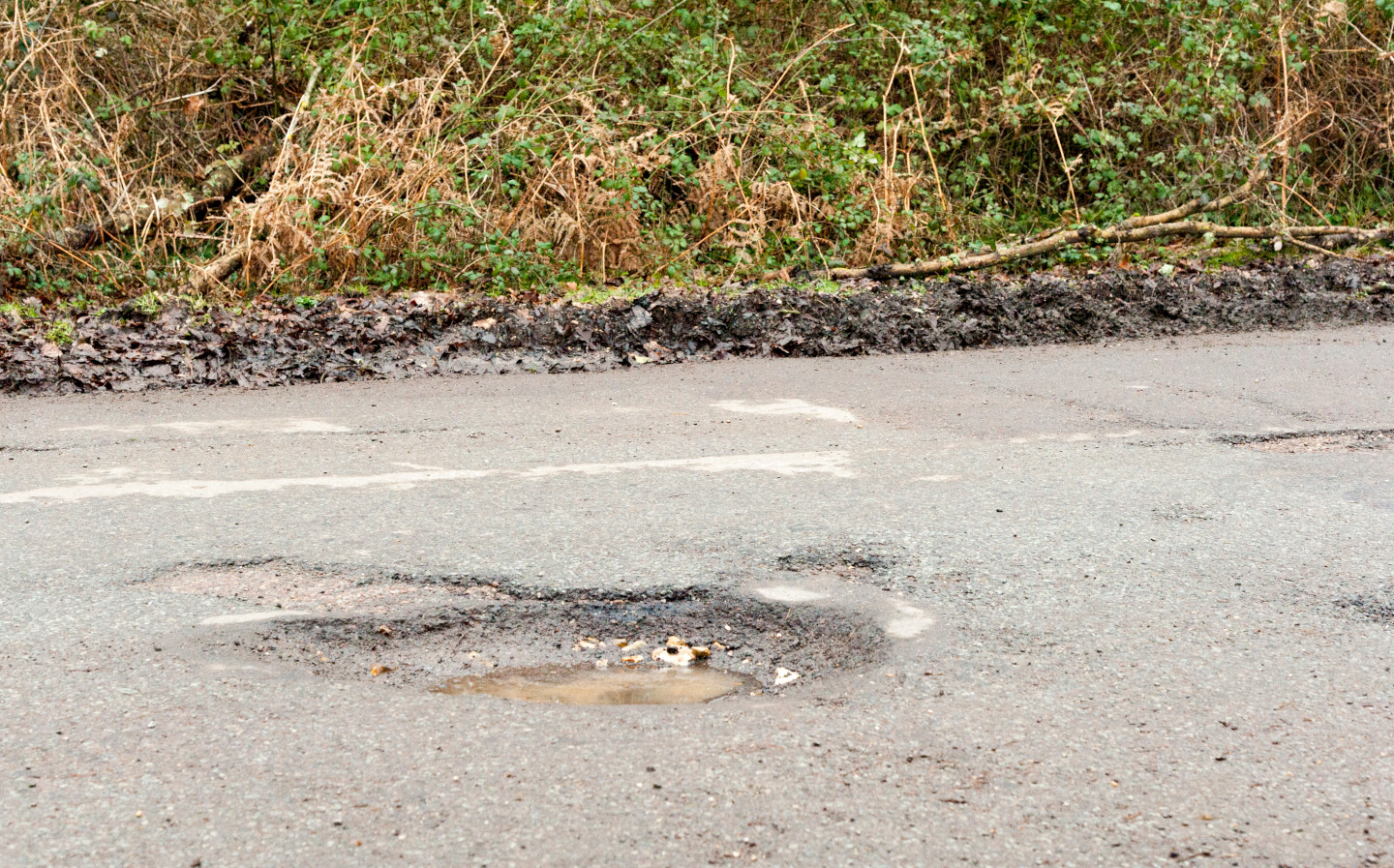Pothole backlog forces four-month waiting times
Response took an average of 18 weeks in some areas
AN INCREASING backlog of unrepaired potholes has meant that some have been left for up to four months before being filled, according to new research.
Figures compiled by GoCompare and quoted by The Times revealed that last year the average time that potholes were left unfixed after forming was nearly three weeks, with some local councils forced to delay repair by up to 18 weeks due to backlog.
Fixing a pothole took an average 126 days in Stoke-on-Trent, making it the area of the country that reported the longest response time. The second and third slowest-responding councils were Cornwall and Southampton, for which it took 99 and 90 days respectively.
The government announced on Friday that the second instalment of a £2.5bn road repair fund, part of the 2020 budget, would be made available to local councils. The £500m injection will be sufficient to repair 10 million potholes.
Whitehall expects the money made available to local councils for road repair to be £1.1bn in 2021, once other sources of funding are taken into account.
Of the £500m fund, the most was given to the South West and South East, which received £90,031,000 and £82,693,000 respectively. It has previously been found that London benefits disproportionately from regional pothole repair budgets.
Announcing the funding, Transport Minister Baroness Vere said: “We know potholes are more than just a nuisance – they can be dangerous to drivers and cyclists alike, and cause damage to thousands of vehicles every year.
“The funding allocated today will help councils ensure roads in their area are kept up to standard, and that the potholes that blight road users can be dealt with promptly.”
However, some have said that the money made available is not adequate to solve the UK’s growing pothole problem. The Asphalt Industry Alliance estimates that the true cost of repairing the nearly 43,000 miles of road in the UK classed as being in “poor structural condition” is more than four times the budget allocated by the Chancellor of the Exchequer — around £11.14bn. That total has increased by more than £1.8bn in a year.
According to data from IAM Roadsmart’s annual Safety Culture Report, the number of the holes on the UK’s roads has become the fastest-growing concern for motorists, above texting at the wheel and drink driving.
Issues with potholes are likely to be exacerbated by the cold weather experienced in the UK over the past few weeks: potholes are caused by water seeping through cracks in a road, which freezes, expands and weakens the surface. Similar issues were caused by the storms that affected the country during the first three months of last year.
The UK experienced its coldest night in a decade last week.
Tweet to @KieranAhuja Follow @KieranAhuja
- After reading about a backlog of potholes has forced four-month waiting times, you might be interested in reading about a new machine made by JCB that can fix potholes in just eight minutes.
- It has been found that the poor condition of the UK’s roads is hampering the progress of self-driving vehicles.
- You might also want to read about what else the 2020 budget means for motorists.





